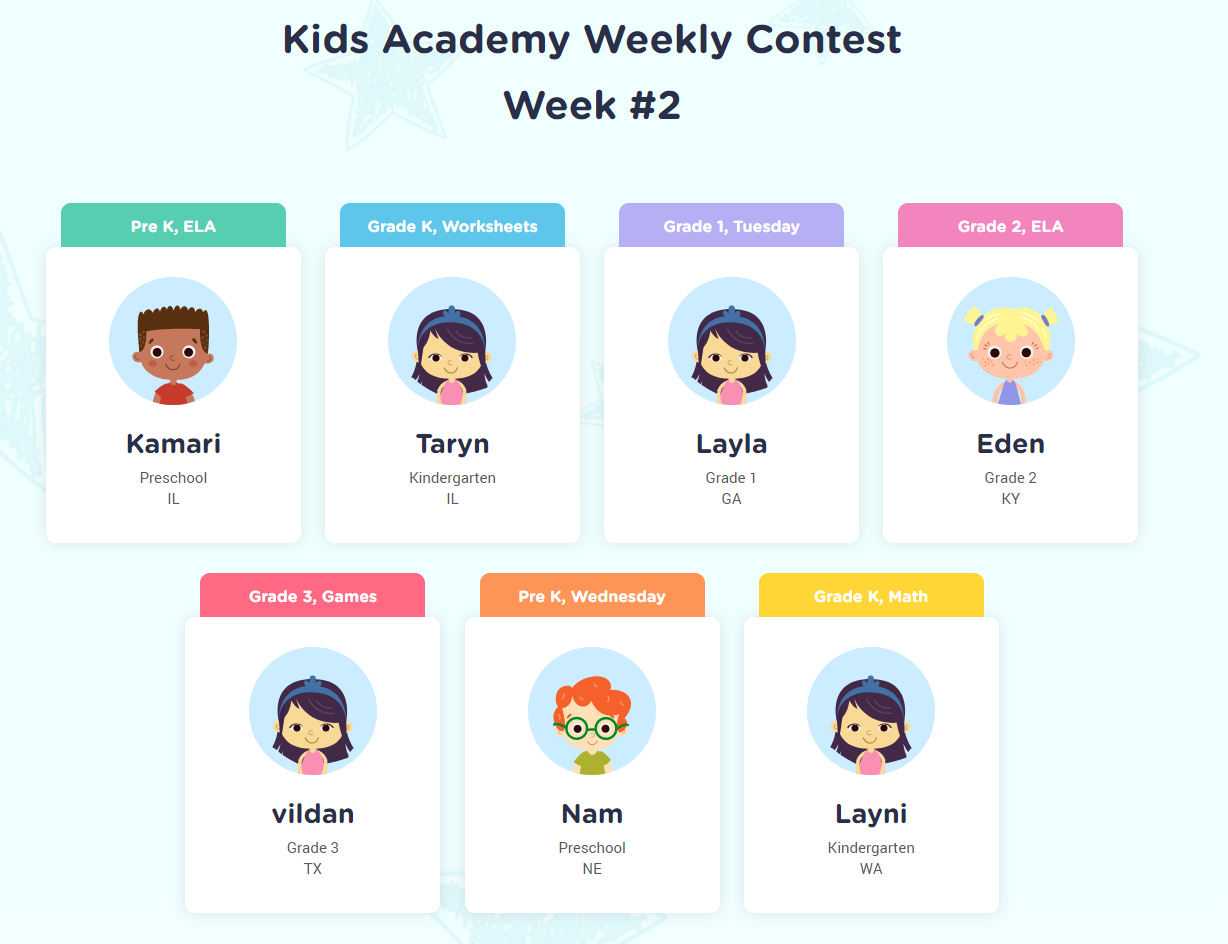What Does It Mean to Be a Good Parent: Guiding your Child with Effective Encouragement
March 24, 2023
Remember those piano lessons your mom made you take in the third grade? Was it your idea to start…or hers? We, as parents, want to guide our children toward the best opportunities and experiences to build skills and resiliency. Nonetheless, our understanding of what is best for them may not always match their own.
Parents usually know what is best for their children since they have a unique understanding of their requirements, preferences, and desires. This ultra-close relationship allows parents to better steer their children into becoming responsible adults. You want your child to respect, trust, and listen to you, and you want to be encouraging but not overbearing. Parental pushing is typical, as parents seek that fine line between motivating their children and placing extra stress on them.
Living Vicariously Through Your Child
Our childhood influences how we parent; most of us want our kids to avoid our early life blunders. The parents of successful children will likely push their children in the same direction they were pushed or may try to encourage them to do something they enjoyed as a child. But what motivates us may not always drive others or our child. It’s important to remember that kids are distinct individuals, different from their parents.
Parents usually expose their children to activities they are naturally drawn to, such as reading or gardening. As long as parents follow their child’s lead and allow them to pursue their own interests, there is nothing wrong with this arrangement. Even if children share many hobbies and ambitions with their parents, they develop unique personalities.
Ignoring the uniqueness of a child’s personality when attempting to fulfill a personal desire is damaging. Trying to put a child in a box limits their ability to achieve their own goals and potential.

One of the first studies to show that parents actually try to salvage unrealized dreams through their children was conducted in 2013. The study discovered that parents try to repair previous grievances by seeking satisfaction in their children’s accomplishments. But trying to relive your old dreams can harm both you and your child. A parent can neglect their kid’s needs if they are attempting to fill emotional holes by using their child as a substitute.
Often, what we encourage our children to accomplish depends on our opinion of what is best for them. Parents can fall into a habit of pressuring kids to study more and encourage them to undertake activities to help them compete for college admissions and scholarships. That includes trying new things to build skills and improve their life circumstances.
As well as feeling compelled by social norms and excessive expectations, many parents often feel obligated to provide certain advantages to their children. The cutthroat, stigmatizing, and draining nature of parenting in today’s society is well-documented. It’s not hard to see why some parents project their own childhood disappointments onto their children. When making parenting choices, it’s critical to take your feelings and experiences into account in addition to your motivations and goals.
Am I Pushing Too Much?
Participating in sports, auditioning for a play, or engaging with new friends will teach youngsters tenacity, adaptability and broaden their worldview. However, pushing youngsters too hard might cause them to withdraw, dislike, or develop a fear of new experiences. Parents often struggle with figuring out whether they are exerting too much pressure on their children. For example, sporting activities for kids have several advantages; however, forcing children into playing sports can severely affect their emotional development and undermine your parent-child connection.
When youngsters are pushed to participate despite their lack of aptitude, they can feel humiliated over repeated failures. Rather than building positive self-esteem, continuous embarrassment can produce tension, anxiety, withdrawal, and depression in children.
Instead of focusing on character qualities, behaviors, and other skills to establish healthy self-esteem, the youngster may negatively perceive their performance.
Sometimes, these issues are age-related. Your child may not be developmentally mature enough for a particular activity. It may be time to revisit the situation if you notice a complete shift in their attitude, if they’ve had significant tantrums over attending, or if the battle to get them there is extreme.
If you push an activity too much, your child will eventually dislike the activity or may shun the activity and you altogether. Because of the bitterness, your relationship with your kid may become strained, affecting the communication flow. As a parent, we need to communicate with our children to meet their needs. You may find that your child is emotionally dependent on peers or others who do not have his best interests in mind if you both cannot communicate efficiently.
Encouragement Without Being “Pushy”
A little bit of pressure is beneficial, and helping kids overcome adversity can boost their confidence. It gives youngsters the security of knowing that a parent will assist them with solving an issue rather than just removing it. A youngster feels accomplished and proud of themselves for making it through it successfully.
Youngsters must be encouraged to finish new activities. If you have signed up for an entire baseball season, it’s essential to try and finish it all. If they choose not to participate next year, no big deal; focus on something new they would be interested in trying.
As a parent, you’re attempting to instill in your child the idea that you should try to see it through if you commit. Teach your child to think flexibly: if something doesn’t seem fun on day one, it doesn’t mean it will always be terrible. However, rethink the situation if they suddenly dislike an activity they formerly enjoyed. They may have been bullied, had a traumatic social experience, or lacked support from essential adults. Occasionally, parents will misinterpret a situation, so it’s imperative to listen to what your child has to say.
Consider your child’s personality, abilities, and interests when encouraging extracurricular activities, and include them in the discussion. This can be helpful when deciding when and how much to push them.
When your child isn’t reacting to moderate pressure, think about what’s stopping them. Sometimes, pressure on your child can cause you both to hit a wall. Issues like learning disabilities or anxiety disorders are legitimate reasons why your child may have trouble participating in an activity, despite your well-intentioned encouragement.

Trusting the Process
Children demonstrate responsible independence in a variety of ways throughout their development. However, we can see how unguided decisions will lead our children into trouble. This is where we must make judgments based on their best interests, not our own.
Individualization is the process of separating from one’s parents and forming one’s own identity. Parents must encourage their children to follow their own aspirations. Their emotional and intellectual development may be hindered if parents are reluctant or unable to do so. There is a risk that this will hinder a child’s success as an adult or give them a sense of inadequacy when making decisions without parental guidance.
Individualization is the process of separating from one’s parents and forming one’s own identity. Children's emotional and intellectual development may be hindered if parents are reluctant or unable to encourage their children to follow their own aspirations. There is a risk that this will hinder a child’s success as an adult or give them a sense of inadequacy when making decisions without parental guidance.
Most youngsters can be apprehensive about trying something new due to a lack of expertise and confidence. Fear of failure prevents them from attempting. Be careful to prevent them from falling into this negative cycle. A lack of confidence can lead to blunders that can derail a child’s life. Children’s confidence and self-esteem develop exponentially when they master a new talent. Because of their high level of self-assurance, they will most likely be successful in other aspects of his life. This gives them the courage to go for it when encountering new challenges.
Every youngster should be active in something that fascinates them. Have your child settle on anything they are curious about and give it a fair shot for a couple of months to see whether it works for them. It may be helpful to set a time restriction, such as four sessions, and then reassess and discover what you enjoy and dislike about the activity. And here is the most critical part: if it’s not working out, switch activities and try again. Something your kid clicks with might become a talent.
As a parent, you play an important role in helping your child succeed. Begin with small steps. Instead of competing with other peers, get friends together on the weekends and see if your child is interested in different activities. The relaxed atmosphere around familiar family and friends can encourage your child to participate.
The obstacles will vary as your kid grows, but your response should remain constant, firm, and compassionate. Teach your youngster that making an effort creates positive self-esteem and confidence you learn to overcome life’s obstacles. If you are interested in learning more about how to boost your child’s self-esteem, look no further than Kids Academy, where you will find a ton of resources to help your child feel successful!
About the author
United States, CA, Felton
References:
- Brummelman, E., Thomaes, S., Slagt, M., Overbeek, G., de Castro, B., & Bushman, B. (2013). My Child Redeems My Broken Dreams: On Parents Transferring Their Unfulfilled Ambitions onto Their Child. Plos ONE, 8(6), e65360. https://doi.org/10.1371/journal.pone.0065360
- https://childmind.org/article/pushing-kids-without-pushing-too-hard/
- https://amotherfarfromhome.com/children-dont-always-know-what-is-best-for-them/
- https://howtoadult.com/negative-effects-of-parents-that-push-their-children-into-playing-sports-8221851.html
- https://strategiesforparents.com/why-parents-know-what-is-best-for-their-child/
- https://www.goodtherapy.org/blog/dream-deferred-are-you-living-vicariously-through-your-child-0306197
- Segrin, C., Woszidlo, A., Givertz, M., & Montgomery, N. (2013). Parent and Child Traits Associated with Overparenting. Journal Of Social And Clinical Psychology, 32(6), 569-595. https://doi.org/10.1521/jscp.2013.32.6.569












